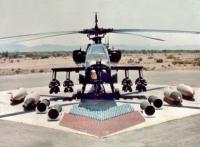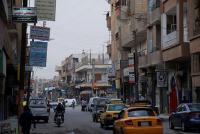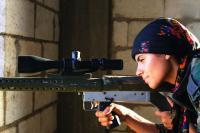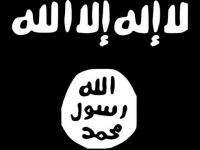-
U.S. deploys more troops, Apache helicopters to Iraq to help in attack on Mosul

Defense secretary Ash Carter said the United States will send 200 additional troops and a number of Apache helicopters to Iraq to assist in the fight against ISIS. He added that the new forces will be used mostly to advise Iraqi forces on the front lines. The decision to deploy the troops has been made in the context of the Iraqi drive to recapture the city of Mosul.
-
-
EU offers security assistance to Libya
The EU has responded favorably to a request from the new UN-backed Libyan unity government for security assistance – especially in managing migration, border monitoring, and police capacity building. EU officials stopped short, however, of committing the EU to operate on the Libyan coast and in Libyan territorial waters to block people smugglers. The EU said it would be more effective to build up the capacity of the Libyan security forces to deal with the issue.
-
-
U.S.-led coalition set to attack and capture Raqqa, ISIS’s unofficial capital

The U.S.-led coalition is getting set to launch a full-scale attack to capture Raqqa, the unofficial capital of ISIS. A U.S. military officials said the assault on Raqqa would be the culmination of a campaign which saw a substantial weakening of ISIS and its position. Earlier last week, the Pentagon said that coalition’s airstrikes had killed 25,000 ISIS militants, and that the territory ISIS controlled in Iraq had shrunk by 40 percent since last year, and by 10 percent in Syria.
-
-
ISIS monthly revenue drops from $80 million to $56 million
ISIS’s monthly revenue has dropped by almost 30 percent in the last year, according to new analysis. Oil production is down to 21,000 barrels per day from 33,000. The loss of territory and population under ISIS control has shrunk the organization’s tax base. To compensate for declining income, ISIS has imposed new taxes on broken satellite dishes and fines for driving on wrong side of the road.
-
-
ISIS ranks shrink as its fighters “realize cause is lost”: Obama

President Barack Obama has said that ISIS ranks have shrunk to the lowest level for two years, the group has lost large areas it used to control, and the militant group’s fighters “realize their cause is lost.”
Obama aid that the jihadist group had lost 40 percent of the territory it used to control in Iraq and 10 percent of its territory in Syria. He also noted that ISIS has suffered major financial setbacks as the U.S.-led coalition was going after the group’s sources of income. Pentagon officials have said U.S. air strikes killed 25,000 militants.
-
-
Paris attacks' mastermind had files on German nuclear waste facility

Salah Abdeslam, the mastermind of the November 2015 terrorist attacks who is now in custody in Belgium, had in his possession documents about a nuclear research center in Germany. The Juelich nuclear center near the Belgium-Germany border is used for the storage of nuclear waste.
-
-
How to protect nuclear plants from terrorists

In the wake of terrorist attacks in Brussels, Paris, Istanbul, Ankara, and elsewhere, nations are rethinking many aspects of domestic security. Nuclear plants, as experts have long known, are potential targets for terrorists, either for sabotage or efforts to steal nuclear materials. At last month’s Nuclear Security Summit in Washington, D.C., representatives from fifty-two countries pledged to continue improving their nuclear security and adopted action plans to work together and through international agencies. But significant countries like Russia and Pakistan are not participating. And many in Europe are just beginning to consider physical security measures. To prevent an attack at a nuclear site, governments must take security at nuclear sites seriously now, not a year from now. In light of the current terrorist threat and with four Nuclear Security Summits completed, countries with nuclear plants need to up their game with regards to physical security at nuclear power facilities before it’s too late.
-
-
Section of 9/11 Commission report linking Saudi Arabia to 9/11 attacks may be declassified
The 9/11 Commission interviewed hundreds of witnesses and compiled a report of more than 800 pages. The report’s last chapter of the report, however, has been classified for the last thirteen years. The White House said that within the next sixty days it will decide whether or not declassify the 28-page chapter. Those familiar with the contents of the classified document indicate that it would reveal a Saudi Arabia-based support network which helped the hijackers 9/11 in the United States.
-
-
2015 was the most lethal year for terrorism in Europe in a decade
2015 was the most lethal year for terrorist violence in Europe in nearly a decade, as terrorists increasingly target private citizens and public gatherings. This marks the first net increase in global terrorism risk ratings since 2013, with the risk ratings of eighteen countries experiencing an increase and thirteen countries seeing a decrease. Shootings overtake bombings in the Western world for the first time since 2007, with terrorists targeting private citizens and public gatherings.
-
-
Latest European Terror Threat Snapshot released
Representative Michael McCaul (R-Texas), chairman of the House Homeland Security Committee, has the other day released the latest European Terror Threat Snapshot. The product is a periodic Committee assessment of the Islamist terror threat environment across Europe. It supplements the Committee’s monthly Terror Threat Snapshot which examines the broader Islamist terror threat the United States, the West, and the world.
-
-
Boko Haram robs children in northeast Nigeria of education
Boko Haram’s attacks on schools, students, and teachers in northeast Nigeria have had a devastating impact on education. Between 2009 and 2015, Boko Haram’s attacks destroyed more than 910 schools and forced at least 1,500 more to close. At least 611 teachers have been deliberately killed and another 19,000 forced to flee. The conflict has left nearly one million children with little or no access to school, and Nigeria’s security forces have contributed to the problem by using schools as military bases, putting children at further risk of attack from the Islamist armed group.
-
-
Non-state actors exploiting emerging technologies, complex engineering
In a special issue of the Journal of Strategic Security, experts explore the threat of violent non-state actors (VNSAs) exploiting emerging technologies and executing complex engineering operations to facilitate their violent and criminal activities. The special issue of the journal presents the results of a series of case studies of VNSAs and their attempts to increase their capabilities through engaging in sophisticated engineering efforts.
-
-
FARC’s development of narco-submarines
The Revolutionary Armed Forces of Colombia (FARC) and the Colombian government are in the final stages of negotiating an end to the leftist insurgency in Colombia, but over the last forty years, FARC has proven to be one of the most formidable non-state actors in the world. Showing sophistication and adaptability, the group has upgraded its former methods of drug transportation in favor of a more covert alternative. The development of semi-submersible vessels by FARC highlights the group’s capabilities to engage in highly complex engineering tasks, facilitating drug trafficking across the South and Central American coasts.
-
-
Arab youths reject ISIS, say effort to establish Islamic State will fail

Arab youth say the rise of ISIS remains the single biggest challenge facing the Middle East, but young people in the region overwhelmingly reject the extremist group and believe it will fail to establish an Islamic state. That is the headline finding of the eighth annual ASDA’A Burson-Marsteller Arab Youth Survey, released the other day. ASDA says that while three in four Arab youth are concerned about the rise of ISIS, just one in six believes the terrorist group ultimately will succeed.
-
-
10-fold increase in number of children Boko Haram uses in suicide attacks
The number of children involved in ‘suicide’ attacks in Nigeria, Cameroon, Chad, and Niger has risen sharply over the past year, from four in 2014 to forty-four in 2015, according to a UNICEF report released yesterday. More than 75 percent of the children involved in the attacks are girls.
-
- All
- Regional
- Water
- Biometrics
- Borders/Immig
- Business
- Cybersecurity
- Detection
- Disasters
- Government
- Infrastructure
- International
- Public health
- Public Safety
- Communication interoperabillity
- Emergency services
- Emergency medical services
- Fire
- First response
- IEDs
- Law Enforcement
- Law Enforcement Technology
- Military technology
- Nonlethal weapons
- Nuclear weapons
- Personal protection equipment
- Police
- Notification /alert systems
- Situational awareness
- Weapons systems
- Sci-Tech
- Sector Reports
- Surveillance
- Transportation
Advertising & Marketing: advertise@newswirepubs.com
Editorial: editor@newswirepubs.com
General: info@newswirepubs.com
2010-2011 © News Wire Publications, LLC News Wire Publications, LLC
220 Old Country Road | Suite 200 | Mineola | New York | 11501
Permissions and Policies
Editorial: editor@newswirepubs.com
General: info@newswirepubs.com
2010-2011 © News Wire Publications, LLC News Wire Publications, LLC
220 Old Country Road | Suite 200 | Mineola | New York | 11501
Permissions and Policies
